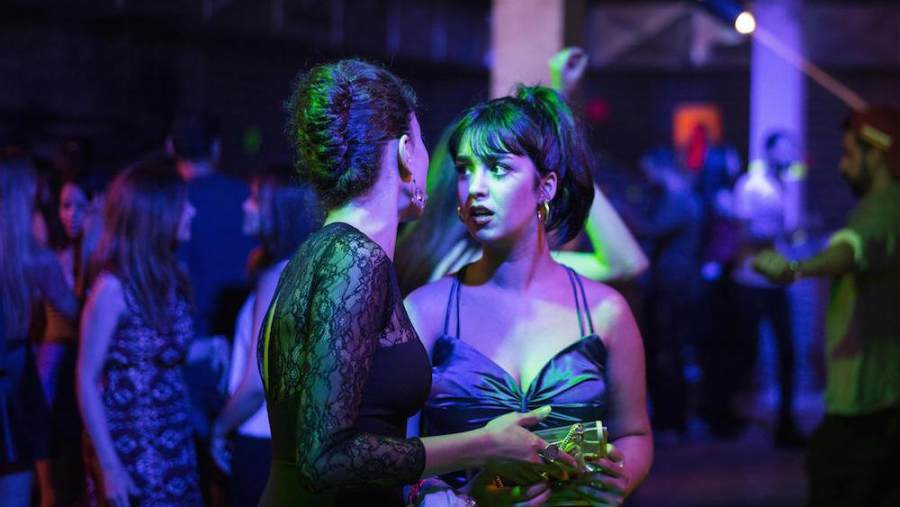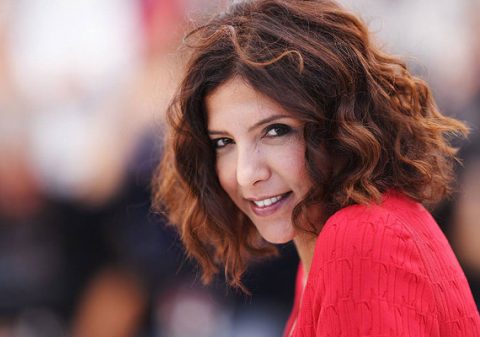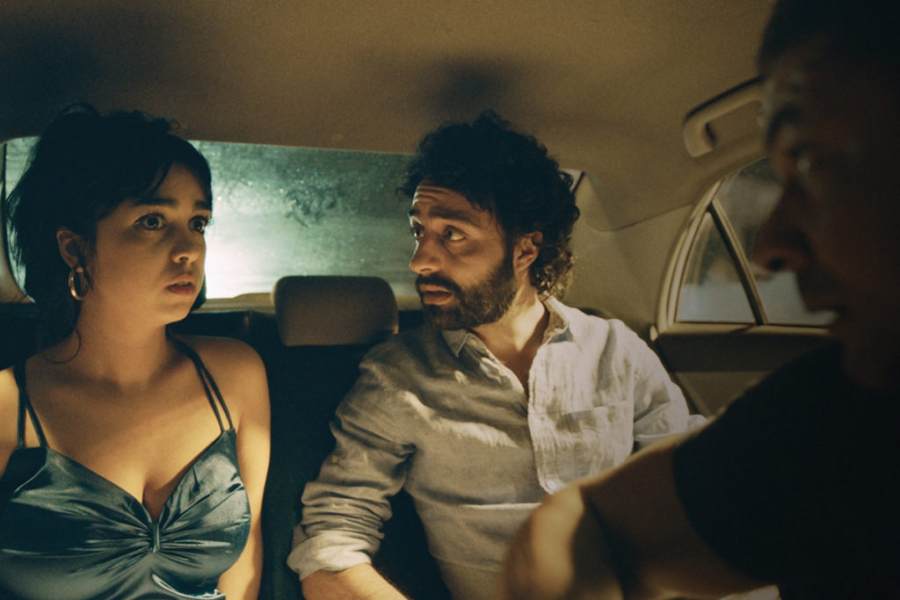

In director Kaouther Ben Hania's Beauty and the Dogs, a night of joy turns into a nightmare, when Mariam (Mariam Al Ferjani) is raped by police officers, while out on the town. Physically and emotionally battered, Mariam must also endure the inefficiency and indifference of the organizations meant to help her. When she isn't seen at a clinic because she doesn't have proper identification (she left her purse behind running away from the men who raped her) it seems as if her traumatic experience will only be amplified by the fact that she will encounter constant abuse from those meant to serve justice. A harrowing experience, Beauty and the Dogs, is must see cinema at a time when women's rights, and the shameful history of perpetuating abuse, have rightfully become the center of the sociopolitical conversation all over the world. We spoke to director Kaouther Ben Hania, about the real life story that inspired the film, her unique sense of timing, and why fiction was the best way to convey Mariam's plea.
Your film was based on a news article that shocked you. Even though the woman in real life won the case, I wonder if making the film in any way was your way to call for justice for the many, many other women whose cases never even see the light of day?
What made me want to do this movie is the courage of this specific woman. I think she can be a role model for other women. I was really amazed by her courage and I was wondering how she could be very fragile and in such weak situation and still go on this hard journey to find her inner strength. I don’t know if that is available for all the women who go through such a situation because women are very different. But I wanted to make an homage to her courage.
In what ways did the media fail and succeed in covering the case, and how did these affect the way in which you wrote Mariam?
I think the media conveyed the news in a way that allowed for the pressure of the public opinion about this story. For me, what was interesting here was what happened before the media arrived. That’s why the movie was about the first night. The film does include a small journalist character that approaches Mariam to give an idea of what would happen after that first night. But I wasn’t really interested in having Mariam supported by media and society and feminist organizations in the film. I was interested in conveying her journey that first night, where she found herself alone against this powerful institution and all the pressure she was under—and then ultimately, how she discovered her strength. So that afterward, when all the help finally comes from the outside, she’s ready for it. She isn’t afraid anymore.
 At first your film focuses on Mariam's trauma rather than the horrors of bureaucracy, why was it important for you to portray this?
At first your film focuses on Mariam's trauma rather than the horrors of bureaucracy, why was it important for you to portray this?
Mariam’s trauma is caused by the rape but also by the horror of bureaucracy. It goes together. When you feel that your personal tragedy is being treated in a very cold and bureaucratic way, and that sometimes institutions are against you because you are implicated in the story, then it makes the horror more obvious. It’s like a second rape. It is important to portray this gap between the personal tragedy of the main character and the coldness of institutions. Hospitals and police institutions deal with this every day.
The film's long takes literally make sure that we can't take our eyes away from the action, what were some of the challenges in creating sequences that were effective aesthetically and emotionally for the audience members?
When I first started writing this, I had to ask myself how I would tell the story. The main challenge was finding the most effective way to have the audience feel the same feelings as the main character of the movie and I thought that long takes are really strong for this because it’s real times—we are really engaged in the moment all the way with the character. It was a difficult technical challenge, but I think the story needed to be told in this way because it is very engaging.
Your previous film was a mock documentary, were you ever interested in making a documentary about this story? Why was fiction the best way to go?
Yes; I could have made a documentary since it’s a real story but when I heard about this story I had an emotional impression that I could portray it only if I used the tools of fiction. I was thinking about this woman’s night after the rape occurred and I thought it was like a horror movie—and I really wanted to use the elements of horror movies and thrillers and film noir to tell this story. For me to communicate the emotion I felt to the audience, I needed to adapt this story. I wasn’t completely faithful to the real event; I changed a lot of things to translate this emotion of horror. For this, fiction gives you more tools than documentary.

What kind of work did you do with Mariam Al Ferjani to prepare her for the role?
We worked a lot. We talked a lot. We had many discussions about the character and her emotional journey. We spent a great deal of time rehearsing—both alone and with other actors—and we also wrote together all of the character’s thoughts, all of her subtext. We wanted to have an understanding for what the character is not saying in dialogues, so that Mariam would know how the character feels in each moment.
Film criticism is still mostly dominated by white men, what do you think gets lost when we don't read what people of color and women might have to say about a film like yours?
Not only film criticism is mostly dominated by white men, the industry of cinema is dominated by them. But we are talking about domination—the dominator and the dominated—not so much ethnicity. This is shown in my film, as Mariam is facing the powerful men who are not white, but it’s the same structure of domination. I think the topic of justice is something very important and the label of white men is very vague—you can have non-white men but since they are powerful they can be under this category, since they are dominant.
In the era of #MeToo in what ways do you hope the film landscape will change for female artists?
I do not think that films have this power to change things radically. I think it is political power—the politicians who have this power. Films can change the way that you see things. If my film is seen by a lot of different people then I hope it can change the way people look at things.
Beauty and the Dogs is in theaters on March 23. Check out an exclusive clip from the film, below.